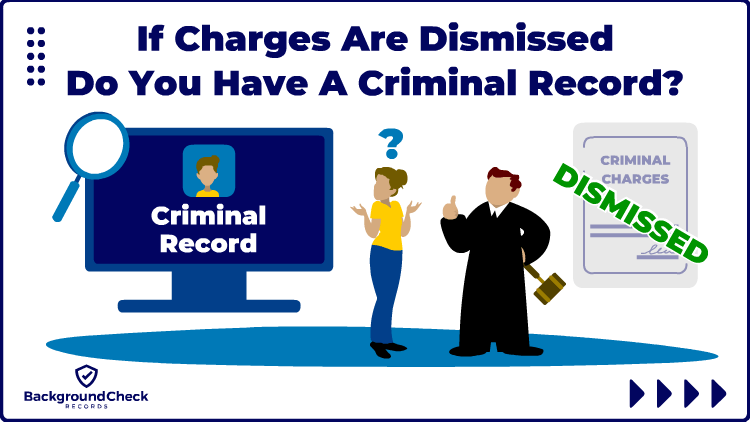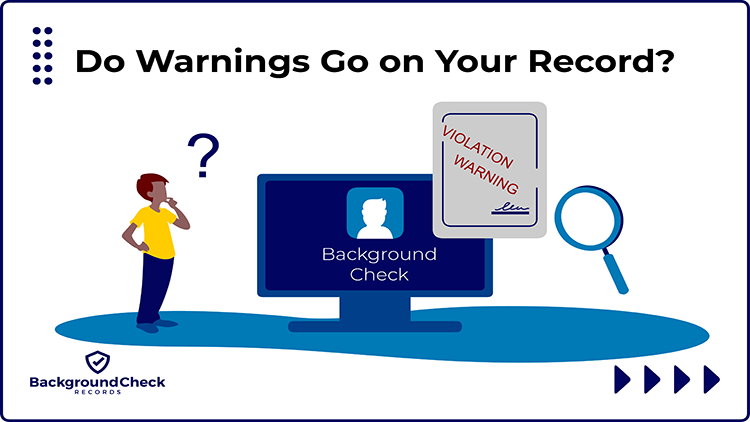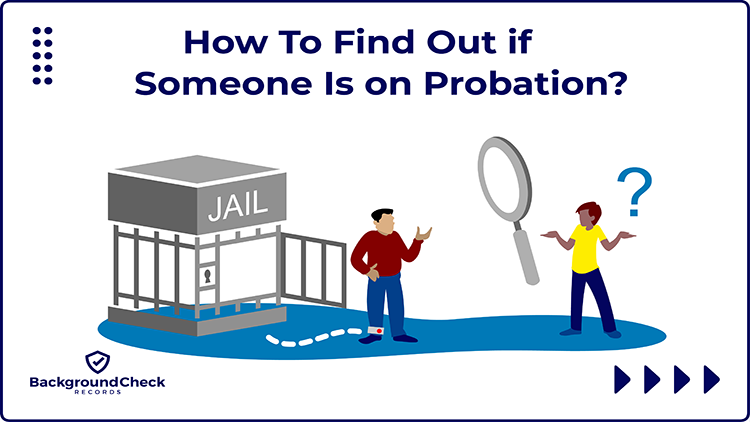If Charges Are Dismissed Do You Have a Criminal Record? (Bad News)
When a defendant appears before a judge and learns their case has been dismissed, it often raises the concern of whether having charges dismissed results in a criminal record.
The reality is that dismissing a charge does not always erase it entirely, and it may still appear in background checks. However, in most cases, it should not be used against you.
Case Dismissed: What Dismissed Charges Means?
When charges are dismissed, it signifies a legal outcome where the case is no longer pursued in court. Understanding the timing of this outcome during the court process is crucial for defendants in criminal matters. It’s also essential to differentiate between dismissed and dropped charges.
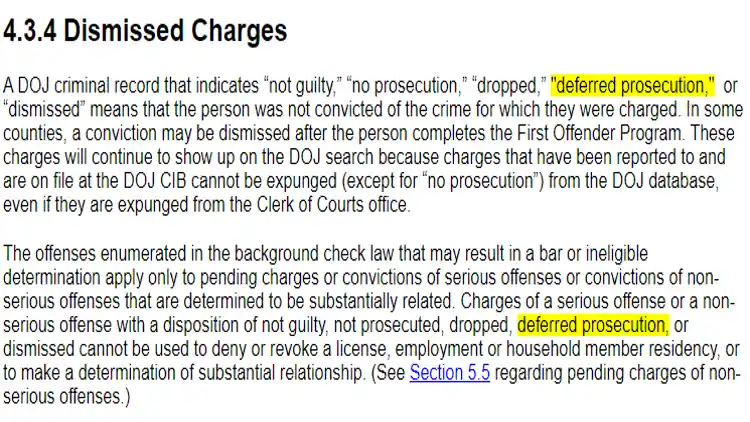
Essentially, a dismissed case or charge means the court has ruled there is insufficient evidence to proceed but dropped charges differ.
Difference Between Dropped and Dismissed Charges
Often individuals will use the phrases dismissed charges and dropped charges interchangeably, but they are actually two separate methods of not prosecuting a criminal offense. Whether or not the case can be refiled is the biggest difference between dropped vs dismissed.
Dropped charges refer to those that are removed from the docket by the district attorney usually before the court proceedings have begun. The defense can request charges be dropped when the case is called for a hearing and presents the reasons why.
Jeopardy, which means the defendant is at risk of going to jail or prison, does not attach to dropped charges because evidence has not been presented to a judge. Dropped charges can be reinstated if new evidence is discovered.
On the other hand, dismissed charges occur at some point during the hearing after evidence has been presented. The defense attorney usually files a motion to dismiss after the district attorney has presented his or her case to the judge. In the majority of dismissed charges, jeopardy has attached meaning that once dismissed they cannot be reinstated depending on when and how they are dismissed.
How Cases Are Dismissed
During the hearing process, the defense attorney can make a motion to dismiss based on a legal argument supporting the motion. Essentially, this means the defense attorney argues there is no reason to move forward with the case. The prosecution can make a counterargument that the charge should not be dismissed or can agree to dismiss the charge without prejudice.
It’s important to understand the difference between with and without prejudice. When the case is dismissed without prejudice it can be reinstated at a later date. Cases dismissed with prejudice are completely done regarding court proceedings and cannot be refilled.1
Once a charge is dismissed, it’s crucial to understand the subsequent proceedings. Given that court records are public, individuals involved should be aware of the implications post-dismissal and their potential impact on future prospects.
Dismissed Charges and Background Checks
With more companies and agencies using background checks to vet employees, knowing the role dismissed charges can play is vital. Between 70 and 100 million Americans have some kind of criminal record, but not all of those records are for actual convictions.2 These charges do not simply vanish from records when dismissed, but the question remains about whether having charges dismissed results in a criminal record.
Background Check Implications for Dismissed Charges
Because charges are considered court records, even when they are dismissed they can and do appear in criminal background checks. Although the dismissal is noted in the record, it does not automatically remove the entry. Even if charges are dismissed, there is a possibility that they may still appear on a person’s record.
Because dismissed charges can show up on a background check, the person being screened needs to know what type of check is being conducted and may need to provide proof of case dismissal or an explanation to the entity requesting the screening.
Types of Background Checks That May Show Dismissed Charges
Undergoing a background check can be stressful enough, but when the possibility of a dismissed charge is added to the mix, it can be even more stressful. There are several types of background checks that can show charges, even if they resulted in dismissal or non-conviction.
The table below outlines these checks and how dismissed charges factor in.
| Background Check Type |
Brief Explanation of Check |
| Personal |
Personal background checks are run by individuals wanting to see their own background info, that of a loved one, or a potential love interest. These are not commercial background checks. |
| Pre-Employment Screening |
These are conducted at some point during the pre-employment process. Because they are considered “official” or “commercial” background checks, there are laws at the state and federal levels that regulate how they can be used. Running this type of check requires the consent of the search subject. |
| Continuous Screenings |
Companies are not running what is referred to as continuous screenings, meaning they conduct background checks on already hired employees. Dismissed charges can appear on these as well. This check requires the subject’s consent (which is usually obtained on the date of employment). |
| Level One |
This is typically a name, date of birth, and possibly social security number check. These are your most basic background screenings. |
| Level Two |
This check usually includes fingerprinting and is more extensive than a Level One check. |
Can Dismissed Charges Be Used Against You?
Dismissed charges typically do not impact individuals seeking employment or housing. State and federal laws offer protections against unfair treatment due to dismissed criminal charges appearing on background checks.
Certain states have measures to promptly remove dismissed charges from public records. Federal regulations also forbid the use of dismissed charges and enforce penalties for violations of these statutes.
Federal Laws Regarding Dismissed Charges and Background Checks
The Federal Trade Commission and the Equal Employment Opportunity Commission oversee the enforcement of federal anti-discrimination laws and the Fair Credit Reporting Act (FCRA) which dictate how background checks can be conducted and permissible uses of the information obtained in the screening.
Dismissed charges are considered non-convictions; therefore, they cannot be used against an applicant for employment, licensure, or a rental agreement. Inquiries about criminal history cannot be made until a conditional offer of employment is made for federal positions as well, and even then a conviction may not be an automatic disqualifier for federal employment.3
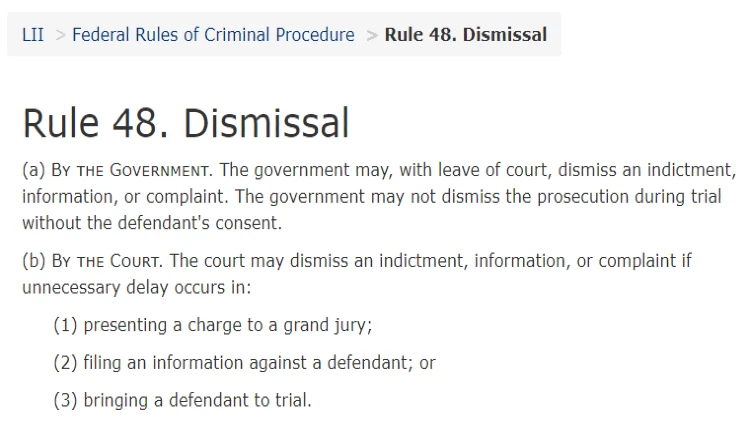
When asking, “if charges are dropped do you have a criminal record” dropped charges have the potential to be reinstated in court, so these could show up on a background check; however, federal laws still prevent dropped charges from being used to deny employment or housing.
When someone feels they have been discriminated against based on dismissed charges, they can file a formal complaint with the EEOC to seek relief.
States must comply with federal guidelines regarding background checks and permissible use of information, but states can and do pass their own laws expanding on federal protections.
State Laws and Background Checks
State laws not only prevent the consideration of dismissed charges in employment or leasing decisions but also include provisions to expunge or clear these records automatically after dismissal in some states. These laws definitively state that having charges dismissed does not result in a criminal record.
For instance, California, Illinois, Massachusetts, and Vermont are among states with “Ban the Box” legislation, which restricts employment background checks. Additionally, across all states, regulations prohibit the use of non-convictions as criteria in employment, licensing, or tenant screening processes.
Domestic Violence Charges and Their Impact
Domestic violence directly affects over 10 million people annually in the United States, and it makes up 15 percent of all violent crimes.4 Each state has different criminal and civil statutes related to domestic violence. However, how these cases impact a person’s record if dismissed varies.
Dismissal of charges is decided by either the judge or, in some cases, the prosecution, particularly when the district attorney (DA) opts not to pursue the case. Domestic violence charges can be dismissed by prosecutors if they decide not to pursue the case or by judges if there is insufficient evidence to proceed. Generally, victims cannot request dismissal of criminal domestic charges, although civil matters may be handled differently.
A charge of domestic violence can impact a person’s ability to gain employment, find housing, purchase a firearm, or be around children or other family members. That is why, when these charges are dismissed, it’s important to take steps to remove them from the record if possible.
Difference Between Criminal Domestic Violence Charges vs Civil Domestic Violence Protective Orders
Domestic violence cases can include court action in both criminal and civil courts for the same incidences. Criminal domestic violence charges usually include matters such as assault on an intimate partner, stalking, harassment, or trespass on property maintained by an intimate partner.
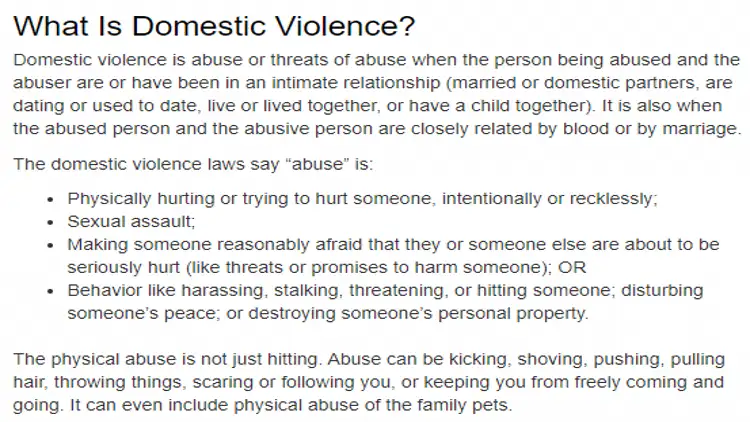
When these cases are dismissed, depending on the state, they can either be automatically expunged or sealed, or a motion to expunge the record can be filed. This does not mean the entire matter goes away. A civil protective order can also be entered against the alleged offender in a separate court, usually a civil court.
A domestic violence protective order, sometimes referred to as a restraining order or order of protection, is issued in civil court and doesn’t carry the same burden of proof a criminal charge carries. Unlike criminal domestic violence charges where a victim cannot request dismissal, the victim can request a civil protective order be dismissed. If there is a hearing, and the judge feels there is sufficient evidence to enter a restraining order, one will be.
This means that even if a criminal charge is dismissed, there are sanctions that can be imposed on someone if they are subject to a civil domestic violence order. If the accompanying domestic violence criminal charge was dismissed or returned a non-conviction, the party does not necessarily have a criminal record, but it does mean the civil order can appear on a background check.
Dismissed Charges and Expungements
Dismissed doesn’t necessarily equate to gone or erased automatically in most states. However, all states do have some mechanism in its criminal codes to expunge, or erase or seal, records when cases are dismissed. Expunging a case helps by removing it from the public record, meaning it won’t show up on background checks.
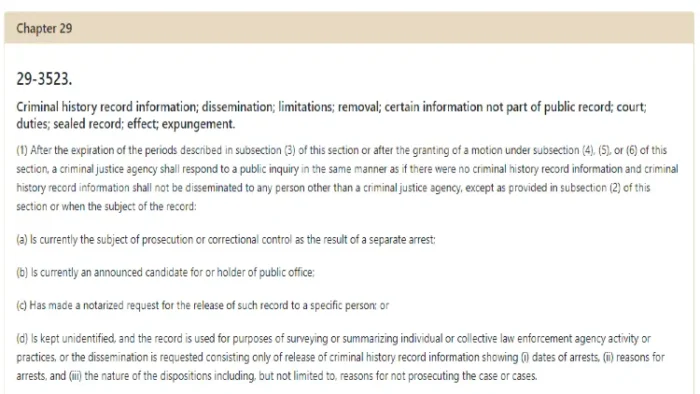
How Expungements Work When Charges are Dismissed
Simply put, expungement means the court has ruled that records of a case (in this instance where charges are dismissed) shall be destroyed and removed from public view. In other words, it wipes the record clean of the dismissed charge as if it never happened.
Sometimes called “Clean Slate” laws, these give individuals a better chance at moving forward after a criminal charge.
State Expungement Laws Regarding Dismissed Charges
Every state has some kind of law on the books regarding the expungement of records; however, only twenty currently have some provision to automatically seal or expunge records for dismissed cases.
These differ in the method of expungement, the time frame, and the type of offense. The table below outlines which states have a law that clears dismissed charges from the public criminal record.
| State |
Brief Description |
| California |
Automatically removes misdemeanors from the public records where the charge was dismissed. |
| Connecticut |
Automatically removes dismissed charges 13 months after the dismissal from the public record. |
| Delaware |
Automatically removed cases from the public record when dismissed in the subject’s favor. |
| Georgia |
Seals cases not referred for prosecution and closed by law enforcement as follows: misdemeanors 2 years after the closing case, felonies 4 years, sex offenses 7 years. |
| Illinois |
Automatically removes charges that were vacated (dismissed) from the public record. |
| Kentucky |
Automatically removes charges dismissed with prejudice from the public record. |
| Michigan |
Automatically removes dismissed charges for certain crimes from the public record. |
| Nebraska |
Removes dismissed charges from the public record when the order of dismissal is entered into the system from public record. |
| New Jersey |
Automatically removes dismissed charges from public record. |
| New York |
Automatically removes charges dismissed in the accused favor from public record. |
| North Carolina |
After Dec 1, 2021, charges dismissed without leave or dismissed by a judge are automatically removed from the public record. |
| North Dakota |
Removal of cases from public records only applies to dismissals following deferred prosecutions. |
| Oklahoma |
Removal of the case refers only to first-time drug offenses dismissed following a deferred prosecution. |
| Pennsylvania |
Removal of all non-convictions, including dismissals, from public record immediately following the dismissal or acquittal. |
| South Carolina |
Removal of cases dismissed in summary court unless the party was fingerprinted when an arrest is made. |
| South Dakota |
Sealing of first-time misdemeanor or felony charges that are dismissed. |
| Tennessee |
The judge must inquire if the defendant wants the record destroyed when the case is dismissed. |
| Texas |
Refers only to Order of Non-Disclosure for deferred prosecutions. |
| Utah |
Removal of cases from the record when dismissed with prejudice. |
| Virginia |
Automatic removal refers only to deferred and later dismissed marijuana possession cases. |
In other states, individuals must petition the court to expunge their records, and it is advisable to seek legal counsel for this process. Courts handle charges daily, but not all cases end in convictions. When a case is dismissed, it does not result in a criminal record, although the matter may resurface.
Therefore, having charges dismissed does not equate to having a criminal record, but it is advisable to pursue record expungement.
Frequently Asked Questions
Where Can Someone Get Proof a Charge was Dismissed?
Sometimes dismissals don’t automatically show up on a background check. When this happens, the subject of the check can obtain proof of the dismissal from the clerk of court in the jurisdiction the case was filed.
If Charges are Dismissed, Do You Still Have a Criminal Record?
If the only matter on the criminal history was the dismissed charge, technically, the subject does not have a criminal record; however, they do have a history of involvement with law enforcement. Only criminal convictions can be used under certain circumstances to deny employment or a rental application.
Will a Dismissed Misdemeanor Show on Record?
If a misdemeanor is dismissed in a state with automatic expungement or sealing non-conviction cases, it should not appear on record. In other states, it will be on the record but will indicate it was dismissed. When a case is expunged, but still shows up on a background check, the subject will need to alert the clerk of court to make sure the record is corrected.
Do Dismissed Charges Count Against You?
In short, no, dismissed charges do not count against someone per state and federal laws designed to give individuals a fair chance at employment and housing. In personal relationships, however, they may create a strain.
What Is the Difference Between Expunged vs Dismissed
Expunged means the record has been erased or wiped clean as if it didn’t occur. Dismissed means the charge is not going to be tried in court, but it does not mean it is erased from the record automatically in most states.
1 Home Court & Hearings Difference between dismissed with or without prejudice. (n.d.). Illinois Legal Aid Online. Retrieved July 22, 2022, from <https://www.illinoislegalaid.org/legal-information/difference-between-dismissed-or-without-prejudice>
2 “Americans with Criminal Records,” The Sentencing Project. (n.d.). The Sentencing Project. Retrieved July 22, 2022, from <https://www.sentencingproject.org/wp-content/uploads/2015/11/Americans-with-Criminal-Records-Poverty-and-Opportunity-Profile.pdf>
3 Employer Background Checks and Your Rights | Consumer Advice. (n.d.). Federal Trade Commission. Retrieved July 22, 2022, from <https://consumer.ftc.gov/articles/employer-background-checks-your-rights>
4 National Statistics. (n.d.). ncadv. Retrieved July 22, 2022, from <https://ncadv.org/STATISTICS>

